Description
Details
Product Description
The advantages and features of the testo 206-pH3 pH measuring instrument
The main advantage of the testo 206-pH3 pH measuring instrument is that it has a connection for an external pH probe. You can use the BNC socket to connect a probe suited to your requirements and swap it as and when needed (probe can be ordered separately). Testo offers pH probes for liquids, a food probe (also for semi-solid media) and a pH glass electrode for use in more aggressive media.
Some pH probes from Testo have an in-built temperature sensor. When this kind of probe is used, the delivered temperature value is evaluated automatically. In the case of probes without a temperature sensor, the temperature can be adjusted manually.
Automatic final value recognition makes the measuring process easier. The TopSafe protective case provided protects the measuring instrument against dirt, water and impact (in compliance with IP 68). This means that the measuring instrument can also be used outdoors or in harsh industrial conditions.
Note: to commission the testo 206-pH3 pH measuring instrument, you will need a connectible pH probe (can also be ordered). Testo offers various probes. You can also use suitable pH probes from other manufacturers.
Delivery Scope
Technical Data
| Temperature – NTC | |
|---|---|
| Measuring range | 0 to 80 °C (depending on the pH probe used) |
| Accuracy | ±0.4 °C |
| Resolution | 0.1 °C |
| pH – Electrode | |
|---|---|
| Measuring range | 0 to 14 pH |
| Accuracy | ±0.02 pH |
| Resolution | 0.01 pH |
| General technical data | |
|---|---|
| Weight | 69 g |
| Dimensions | 197 x 33 x 20 mm ((LxWxH))
110 x 33 x 20 mm (without probe and TopSafe) |
| Operating temperature | 0 to +60 °C |
| Product-/housing material | ABS |
| Protection class | IP68 |
| Product colour | white |
| Battery type | 1 x CR2032 |
| Battery life | 80 h (Auto Off 10 min) |
| Display type | LCD (Liquid Crystal Display) |
| Display size | 2 lines |
| Interface | BNC interface |
| Number of channels | 2-channel |
| Measuring rate | 2 measurements per second |
| Temperature compensation | Automatically or manually (dependant on external probe) |
| Storage temperature | -20 to +70 °C |
Applications
pH measurement for drinking water analysis
There have been statutory European directives from as early as 1980, which have regulated the limit values of specific parameters in drinking water. The Drinking Water Ordinance of 21 May 2001 in Germany decreed that water supply companies are obliged to provide their customers with drinking water which complies with the quality laid down in the Drinking Water Ordinance. The pH value is an important parameter for determining water quality.
The water samples taken must be checked for their pH value directly or immediately after sampling. This must not exceed the acidic limit of 6.5 or the alkaline limit of 9.5 and should normally be in the neutral range around 7.
The advantages of the testo 206 one-hand pH measuring instrument:
- Direct measurement on site for fast assessment of the pH value
- Available in three different models (including a version with plug-in probes for easy remote measurement)
- Robust, waterproof “TopSafe” protective cover (protection class IP68)
- Built-in temperature probe for simultaneous measurement of two parameters
- Maintenance-free gel electrolyte
pH measurement for quality assurance in the food sector
The pH value of foods has a direct effect on the growth of microorganisms and therefore on food quality and safety. For this reason, many companies use the pH value as a quality characteristic for evaluating their food. For example, the pH value is of great importance in the manufacture of meat, sausage, delicatessen and dairy products.
The pH value is an important quality parameter in the food sector. It particularly affects the properties of meat and meat-based products, especially with regard to water binding capacity, taste, colour, tenderness and shelf life. In the bakery sector, the acidity of the sourdough can be determined by means of the pH value. In the case of products such as salad dressings, the pH value helps to ensure consistent quality or consistent acidity of the product.
The advantages of the testo 206 one-hand pH measuring instrument:
- Direct measurement in process / in the food for fast assessment of the pH value
- Available in three different versions – depending on the medium in which the measurement is being made
- Robust, waterproof and dishwasher-safe “TopSafe” protective cover (protection class IP68)
- Built-in temperature probe for simultaneous measurement of pH and temperature values
- Maintenance-free gel electrolyte
- 1, 2 or 3-point calibration possible
pH measment inure the cosmetics industry
The pH value is a crucial factor when it comes to assessing the quality of cosmetic products. Cosmetic products which are too acidic or too alkaline can cause skin irritations or rashes. The pH value of the skin is normally between 5 and 6.5 thanks to its natural protective acid mantle. “Skin-neutral” cleansers are actually slightly acidic and can support the skin’s protective acid mantle, which is particularly important for people with sensitive skin. On the other hand, alkaline cleansers could encourage the skin’s process of replenishing its natural oils.
The pH value of cosmetics must therefore be monitored, controlled and, if necessary, adjusted right from the production stage, so that the end product has the required value. The testo 206 one-hand pH measuring instrument helps you to do this through:
- Direct measurement in process for fast assessment of the pH value
- Three different versions of the product – depending on the medium in which the measurement is being made (e.g. liquid, paste-like, etc.)
- Robust, waterproof and dishwasher-safe “TopSafe” protective cover (protection class IP68) to meet strict cleaning requirements in the pharmaceutical sector.
- Built-in temperature probe for simultaneous measurement of two parameters
- Maintenance-free gel electrolyte
- 1, 2 or 3-point calibration possible


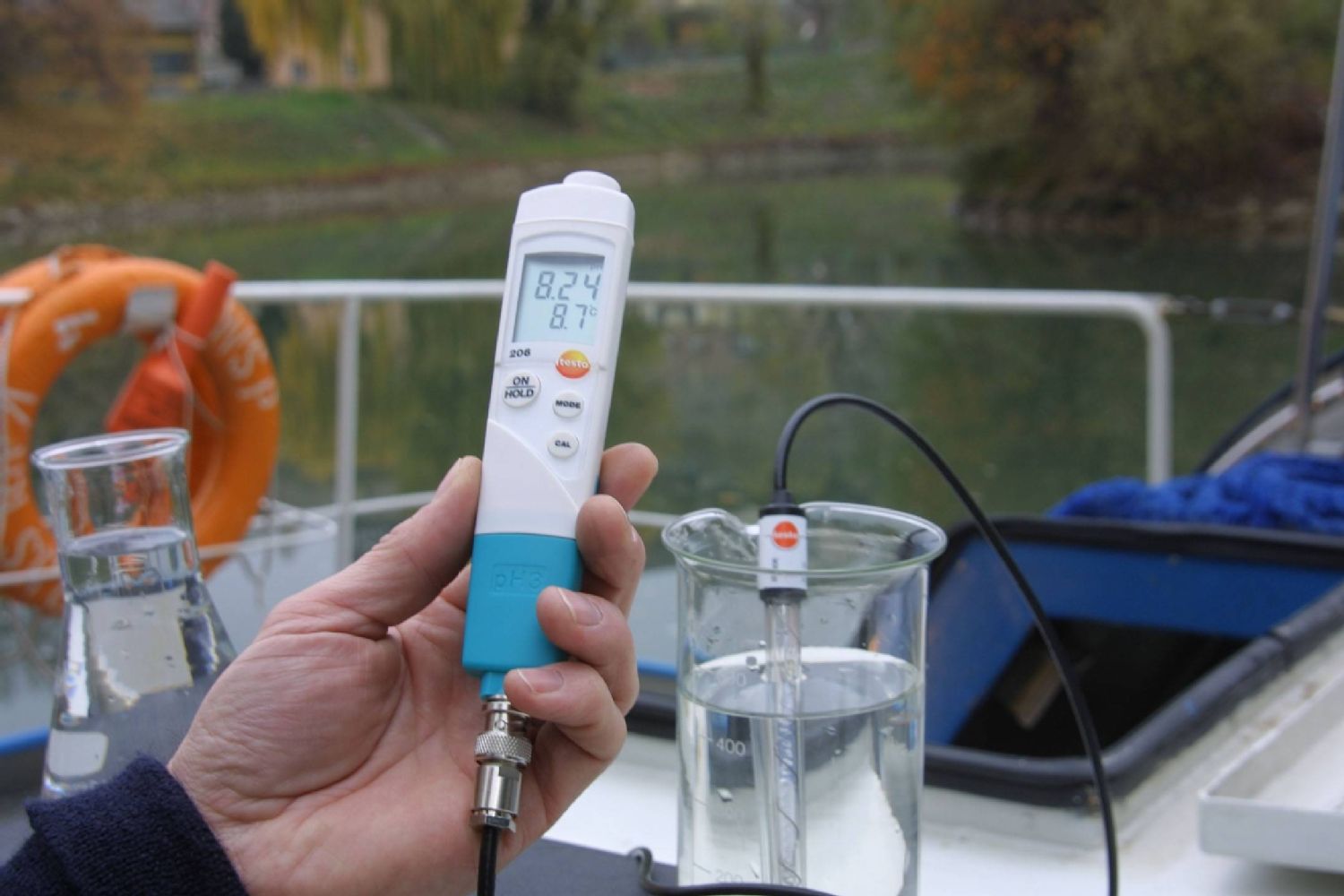

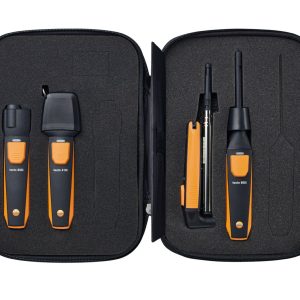
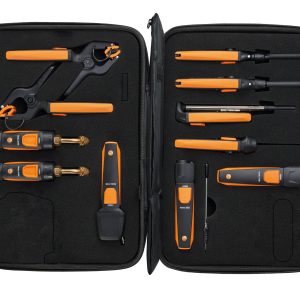
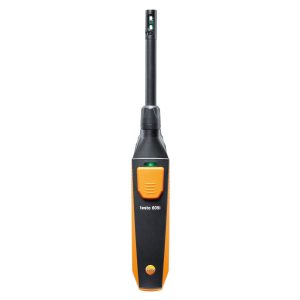
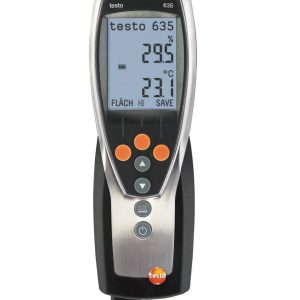
Reviews
There are no reviews yet.